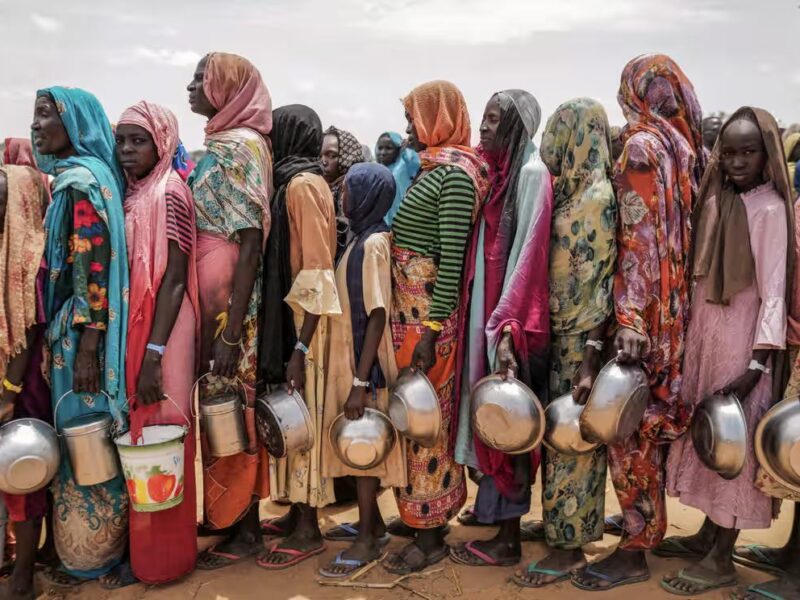Concerning the growing need for aid worldwide, World Food Programme has announced that it will no longer be providing food assistance to 1.4 million people, including refugees from Darfur.
Even as the nation is seeing a surge of refugees from the fighting in Sudan’s Darfur region, the UN World Food Programme (WFP) has warned that food aid for 1.4 million people in Chad faces a “looming halt” due to a lack of funding.
According to the agency, WFP will have to stop providing food for millions of displaced people and refugees in Nigeria, the Central African Republic, and Cameroon starting in December due to funding shortages and rising humanitarian demands.
According to a WFP statement, the ban will be extended to Chad in January. This is a “brutal” move that would negatively impact “new arrivals from Sudan who will not receive food as they flee across the border.”
Since a power struggle between the two men controlling Sudan’s national army and the paramilitary Rapid Support Forces (RSF) in April drove the country into war, nearly half a million Sudanese have crossed into Chad. A recent evaluation found that over 90% of these refugees already don’t have enough to eat.
Most have been fleeing West Darfur, a region plagued by widespread rape, massacres motivated by ethnic hatred, and other violations of human rights. At least 1,000 members of the Masalit minority were slain this month in the West Darfur village of Ardamata by the RSF and other Arab militias, raising fears of a recurrence of the early 2000s genocide.
The World Food Program’s country director for Chad, Pierre Honnorat, stated that “this forgotten crisis has metastasized as the world’s eyes are on other emergencies.” The number of Darfuris who have fled to Chad in the last six months surpasses that of the previous 20 years, which is astounding. We cannot watch helplessly while our life-saving efforts come to a complete stop.
Along with the effects of the climate catastrophe, intercommunal conflicts, and rising food and fuel prices, hundreds of thousands of Chadis are facing starvation. Cutting food aid, Honnorat cautioned, “paves the way for crises of nutrition, crises of instability, and crises of displacement” and would reverse years of work to combat hunger.
To feed people in Chad for an additional six months, WFP needs to raise $185 million (£148 million). Due to a global financing crisis, the agency has been obliged to reduce activities in certain nations and ration supplies.
Funding for it is running out as demands for international assistance rise. Development Initiatives, a data consultant, reports that in 2022, there were 407 million people in need of humanitarian assistance—a record high—an increase of about a third.











